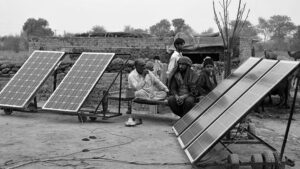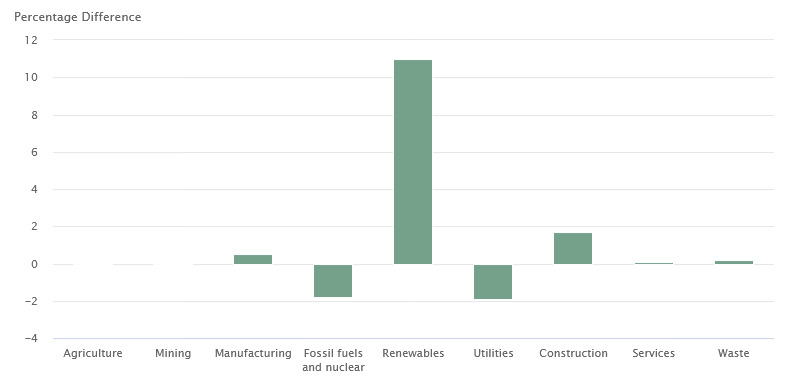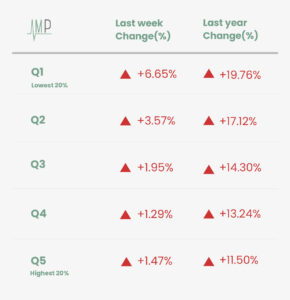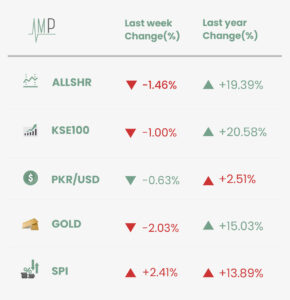Some of you might have noticed a technical issue on our website two weeks ago. Interestingly, the downtime coincided with a surge in web traffic due to last minute preparations by those within our readership brave enough to take the CSS exam. The Macro Pakistani team has worked hard to develop bite-sized digestible content and interactive graphics to provide you with a very basic understanding of what the country is about.
However, there is still more to be done to improve the platform and cater to the growing needs of our civically engaged audience. For this reason, we will be taking a two-week break to work on development. We will also spend this time collecting user feedback so if any of you want to discuss what you like or dislike about Macro Pakistani, please reply to this email. We will follow up to set a time for a 15-minute conversation in the coming weeks.
How will a move to green economy help Pakistan?

By Muhammad Ahmed
Pakistan’s green economy initiatives have been well publicized, from tree plantation projects to the launch of Electric Vehicles Policy. While good news on climate action is abundant, there is still room for improvement. At the same time, Pakistan’s young population will require 2-3 million new jobs to be created for the next 40 years. Climate action can be leveraged to solve for unemployment by restructuring toward a green economy.
If done right, this move toward a green economy has enormous job creation potential along with benefits of wealth redistribution. This is because expected job creation will be higher in labor-intensive sectors. According to the International Labour Organization, climate action to limit global warming to 2°C over the course of the century will result in net job creation of 0.3% globally over the business-as-usual scenario. New jobs in the renewables sector for example, will more than offset those lost in the fossil fuel industry. This overall net job creation will also result in a 41% reduction in greenhouse gas emissions by 2030
Energy sustainability and employment in 2030 (% difference)
Climate action will result in net job creation across the energy value chain

Source: International Labour Organization
The KSE-100 is down by 1% since last week, remaining below the 46,000 mark. However, the markets are still up almost 20% since last year. Decreasing oil prices due to a strengthening dollar were a key reason behind this decline. Despite a stronger US dollar, exchange rate fell each day this week, closing at PKR 158/USD. Gold prices also fell after remaining stable for two weeks. Investors are expecting the inflation spell in the US to be temporary, making gold less attractive. The annual change in Sensitive Price Index rose to a staggering 13.89% compared to 9.92% last week

The whole country experienced double-digit inflation this week with the highest and lowest 20% of the country facing almost 12% and 20% of inflation respectively. Inflation rose sharply due to upward electricity tariff revision by NEPRA and continued increase in food commodity prices. Prices of key food commodities such as Chicken (+2.14%), Potatoes (+1.39%), Eggs (+0.85%) and Ghee (+0.77%) are up since last week. On an annual basis, the rise in prices of these commodities is as high as 66%. Prices of Potatoes were up after having gone down consistently in past weeks. Continued decrease in prices of commodities like Tomatoes (-6.04%) and Onions (-2.42%) failed to keep inflation in control
What Else We’re Reading (Local)
- SBP’s Gender Financial Inclusion Policy prioritizes gender focus and aims to financially include 20 million women by the end of 2023 (Business Recorder)
- After yearlong negotiations, Pakistan and Qatar have signed an LNG deal that will help the country save USD 300 million annually (The News)
- Pakistan will remain on the Financial Action Task Force (FATF) grey list for another four months after largely addressing 24 of the 27 action items (Profit)
What Else We’re Reading (International)
- The rivalry between America and China will hinge on South-east Asia with the region determined to resist being forced into picking sides (Economist)
- Studies have found that Economics is plagued by a singular problem of gender bias with women being asked 12% more questions than men (New York Times)






